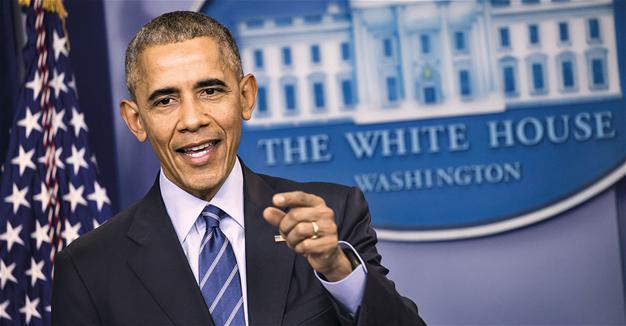Obama bans future oil leases in much of Arctic, Atlantic
HONOLULU – The Associated Press
 U.S. President Barack Obama on Dec. 20 designated the bulk of U.S.-owned waters in the Arctic Ocean and certain areas in the Atlantic Ocean as indefinitely off limits to future oil and gas leasing.
U.S. President Barack Obama on Dec. 20 designated the bulk of U.S.-owned waters in the Arctic Ocean and certain areas in the Atlantic Ocean as indefinitely off limits to future oil and gas leasing.The move helps put some finishing touches on Obama’s environmental legacy while also testing President-elect Donald Trump’s promise to unleash the nation’s untapped energy reserves.
The White House announced the actions in conjunction with the government of Canadian Prime Minister Justin Trudeau, which also placed a moratorium on new oil and gas leasing in its Arctic waters, subject to periodic review.
Obama is making use of an arcane provision in a 1953 law to ban offshore leases in the waters permanently. The statute says that “the president of the United States may, from time to time, withdraw from disposition any of the unleased lands of the outer Continental Shelf.”
Environmental groups hope the ban, despite relying on executive powers, will be difficult for future presidents to reverse. The White House said it’s confident the president’s order will withstand legal challenge and said the language of the statute provides no authority for subsequent presidents to undo permanent withdrawals.
The Atlantic waters placed off limits to new oil and gas leasing are 31 canyons stretching off the coast of New England south to Virginia, though some had hoped for a more extensive ban that would have extended further south.
Existing leases are not affected by the president’s executive actions.
The administration cited environmental concerns in both regions to justify the moratorium. Obama also cited the importance of the Chukchi and Beaufort seas in providing subsistence for native Alaskans and the vulnerability of the ecosystem to an oil spill to justify his directive.
Obama also noted the level of fuel production occurring in the Arctic. Obama said just 0.1 percent of offshore crude production came from the Arctic in 2015, and at current oil prices, significant production would not occur in future decades.
“That’s why looking forward, we must continue to focus on economic empowerment for Arctic communities beyond this one sector,” Obama said.
In issuing a permanent ban, Obama appears to be trying to tie the hands of his successor. Trump has vowed a domestic energy revolution and is filling his Cabinet with nominees deeply opposed to Obama’s environmental and climate change actions.
A key question to be answered is how difficult it will be for future presidents to overturn Obama’s decision should they seek to do so.
The American Petroleum Institute pointed to 2008 when President George W. Bush used a simple memorandum to remove previously withdrawn lands and make all Outer Continental Shelf lands available for leasing except marine sanctuaries.
“Fortunately, there is no such thing as a permanent ban,” said the institute’s Erik Milito.
But White House officials in a conference call with reporters said previous “indefinite withdrawals” remain in place and voiced confidence that Obama’s decision will stand.
















